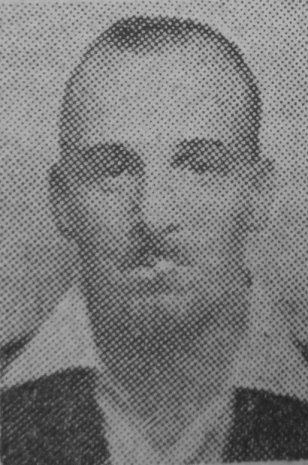South Yorkshire Times, June 16th 1933
Sport In Mombasa
Football With Bare Feet
Wombwell Man’s Experiences

It was not a university rag or a phase of comic opera, but there they were, all dressed up, but no boots—the “Wednesday” team playing football in bare feet! A figment of imagination you will say. Nothing of the kind; this is a “bare” fact. It is one of the recollections of Mr. John Brook. 81, Park Street, Wombwell, who returned to his native land last week from Mombasa. East Africa, where he has served three years as a sanitary inspector with the Mombasa. Corporation.
In an interview with a “South Yorkshire Times” reporter Mr. Brook mentioned that football has been taken up with the greatest enthusiasm in East Africa and the natives kick the ball about without footwear of any kind. He believes that there are native teams in that part of the world who would not disgrace themselves in Second Division football.
The younger son of Mr. John Brook. a well-known figure in Wombwell, Mr. John Brook jnr. was formerly employed in the Health Department of the Sheffield Corporation. He is a member of the Royal Sanitary Institute and the Sanitary Inspectors’ Association. He is best known in Wombwell as a former playing member of the Mitchell Main Cricket Club, and at one time was a sidesman and member of the Wombwell Parochial Church Council. On going out to Mombasa, Mr. Brook was agreeably surprised to find that within a short distance of the Equator there were excellent facilities for playing cricket and many other English games. The population were a decidedly mixed lot consisting not only of different native races but also numerous settlers from the European countries; French, English. Germans, Italians and others. There was also a very considerable Hindu element and many Japs. All mixed freely and sporting life was very enjoyable.
Personally, he devoted most of his time to cricket, but he was also goalkeeper for one of the leading hockey teams. In each branch of sport there were recognised “seasons.” Hockey was played from November to March at temperatures rising to 100 degrees The players turned out in the cool of the evening. butt the torrid heat had practically no effect on the native players.
The “soccer” season extended from May to October. This was considered the “cold” season. the temperature falling to 76.80 degrees. The natives took the game seriously and played some attractive football. They used the offside and all other recognised rules and it was very seldom that one saw evidence of rough play or bad sportsman-ship. Famous English “names” were very popular; “Sheffield Wednesday,” “Sheffield United, “Blackburn Rovers,” “Arsenal.” “Aston Villa” and “Bolton Wanderers.” All had their counterparts in teams in and around Mombasa. For the most part the native players turned out in bare feet. The rough ground seemed to give them no trouble whatsoever and they were able with their unprotected toes to drive the ball with amazing force. On certain occasions the teams were mixed, some wearing studded boots and others no footwear at all. The barefooted ones had their toes jumped upon without apparent discomfort. There was no apologising and no stopping to nurse injuries. Native players always had their referee; sometimes he was only a boy. Regular league matches were arranged and for the native players Mombasa had the equivalent of the English cup.
Mr. Brook was in Mombasa at the formation of the Nienda Sports Club. This was a fraternity of civil servants who arranged cricket, golf and other sports among themselves. The members consisted of teachers, railway officials, administrative workers and custom officials. Cricket was played on artificial wickets with a coral foundation. Considering the extreme heat the golf was good and most of the Europeans played the game.
During his service in East Africa, Mr. Brook experienced fairly good health and thoroughly enjoyed the experience.